The Plumbing Career Path: New Opportunities and Growth
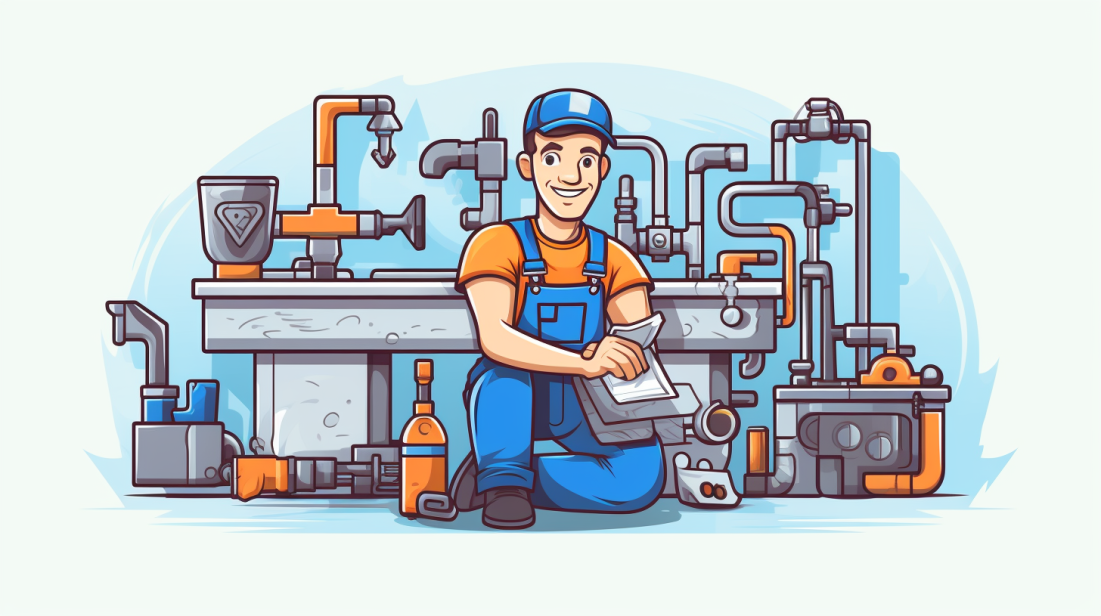
Have you ever considered a career in plumbing? If so, you’re in luck because the plumbing industry offers a wide range of opportunities for individuals looking for a rewarding and lucrative career path. Plumbers are in high demand, as everyone relies on indoor plumbing for various purposes. Whether you’re interested in working with drainage systems, piping, or HVAC, the plumbing career path has something to offer.
- The plumbing industry provides new opportunities and growth potential.
- Plumbing offers a variety of entry-level positions and a clear career progression path.
- Plumbers have the option to work independently or start their own business.
- Employment opportunities are available in commercial, residential, and industrial plumbing sectors.
- Advantages of becoming a plumber include high earnings and the potential for career advancement.
Exploring the Plumbing Industry
When you think of plumbing, you probably imagine fixing leaky faucets or unclogging toilets, but the field of plumbing encompasses much more than that. Plumbing is a vital part of our everyday lives, ensuring that water flows seamlessly into our homes and businesses and that waste is safely disposed of. From plumbing systems in residential buildings to complex piping networks in industrial facilities, plumbers play a crucial role in keeping our infrastructure functioning effectively.
The plumbing industry encompasses a wide range of tasks and responsibilities. Plumbers are experts in installing, repairing, and maintaining various plumbing systems, including drainage systems, piping, and HVAC (heating, ventilation, and air conditioning). They work with a variety of materials and tools to ensure that water and gas flow smoothly and safely throughout buildings.
Plumbers may specialize in different areas, such as residential plumbing, commercial plumbing, or industrial plumbing. Residential plumbers focus on installing and repairing plumbing fixtures in homes and apartment buildings, while commercial plumbers handle larger-scale projects for businesses and office complexes. Industrial plumbers, on the other hand, work in industrial settings like factories, power plants, and manufacturing facilities, dealing with complex piping systems and specialized equipment.
| Types of Plumbers | Description |
|---|---|
| Residential Plumbers | Install and repair plumbing fixtures in homes and apartments |
| Commercial Plumbers | Handle plumbing projects for businesses and office complexes |
| Industrial Plumbers | Work in industrial settings, dealing with complex piping systems |
“Plumbing is not just about fixing leaks; it’s about ensuring the smooth flow of water and maintaining the integrity of our infrastructure.”
As the plumbing industry continues to grow, there is a constant demand for skilled plumbers. The job outlook for plumbers is promising, with the Bureau of Labor Statistics projecting a 4% growth rate in employment opportunities from 2019 to 2029. This growth is fueled by factors such as population growth, aging infrastructure, and the need for energy-efficient plumbing systems.
Plumbing, a field often associated with fixing leaky faucets and unclogging toilets, offers diverse and rewarding career opportunities. Plumbers are integral to the functioning of our homes, businesses, and communities. From ensuring proper water flow to maintaining drainage systems, plumbers play a vital role in maintaining a safe and efficient plumbing infrastructure.
The plumbing industry encompasses a wide range of tasks, from installing and maintaining plumbing fixtures to repairing complex piping systems. Plumbers work with materials such as pipes, fittings, valves, and pumps to ensure water supply and wastewater disposal are effectively managed. They also handle heating, ventilation, and air conditioning systems, ensuring optimal indoor comfort.
Plumbers can choose to specialize in various sectors, including residential, commercial, and industrial plumbing. Residential plumbers work on homes and apartment buildings, focusing on installing and repairing fixtures like sinks, showers, and toilets. Commercial plumbers handle plumbing projects for office buildings, shopping malls, and other commercial establishments. Industrial plumbers work in factories, power plants, and industrial facilities, tackling large-scale plumbing systems and equipment installations.
Types of Plumbers
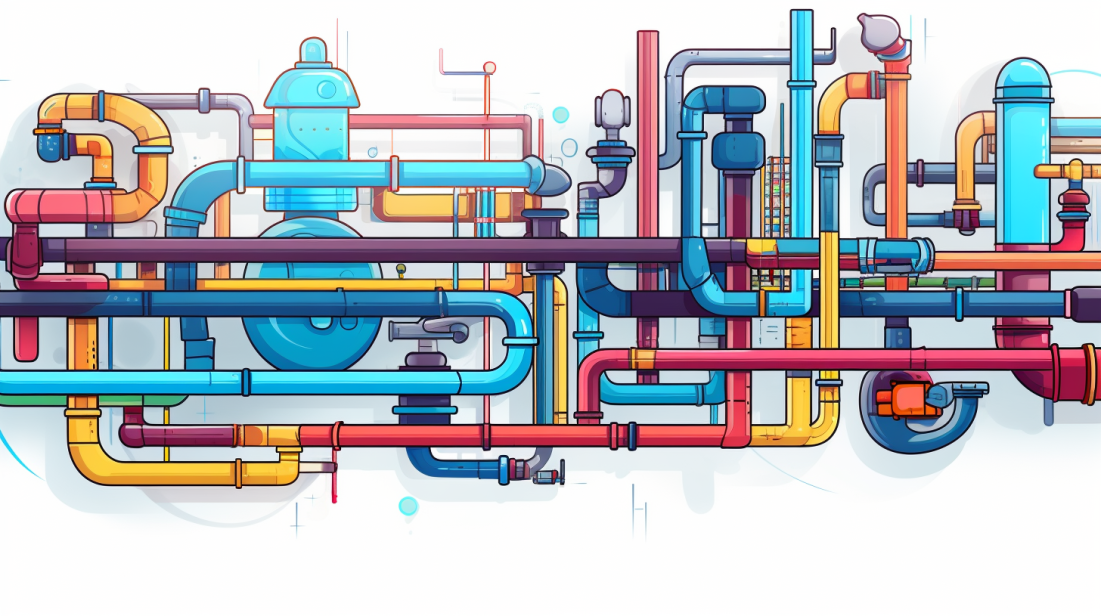
- Residential Plumbers: Install and repair plumbing fixtures in homes and apartment buildings
- Commercial Plumbers: Handle plumbing projects for office buildings, shopping malls, and more
- Industrial Plumbers: Work in factories, power plants, and industrial facilities
The demand for plumbers is expected to remain strong in the coming years. With growing populations and the need for infrastructure maintenance and improvements, skilled plumbers will continue to be in high demand. Expanding construction projects and increased emphasis on energy-efficient plumbing systems contribute to the positive job outlook. Whether you choose to work for a plumbing company, become an apprentice, or start your own business, the plumbing industry offers countless opportunities for growth and a rewarding career.
Becoming a Plumber: Entry-Level Positions and Career Progression
Starting a career in plumbing doesn’t require a formal education, as you can enter the trade as an entry-level worker and gradually work your way up. The plumbing industry offers a variety of opportunities for individuals interested in pursuing a technical career that involves troubleshooting and problem-solving. As an entry-level worker, you will gain hands-on experience and learn the basics of plumbing under the guidance of experienced professionals.
As you progress in your career, you can become a journeyman plumber. A journeyman plumber is a skilled tradesperson who has completed an apprenticeship and attained a certain level of expertise. They are responsible for installing, repairing, and maintaining plumbing systems in residential, commercial, and industrial buildings. Journeyman plumbers have a solid foundation of technical knowledge and can handle more complex tasks independently.
If you are looking to further advance your career, you can pursue opportunities for specialization or move into supervisory roles. Specializing in a specific area of plumbing, such as pipefitting or gas fitting, can open up new avenues for growth. Supervisory positions allow you to oversee and manage a team of plumbers, ensuring that projects are completed efficiently and to high-quality standards.
Training and Certification
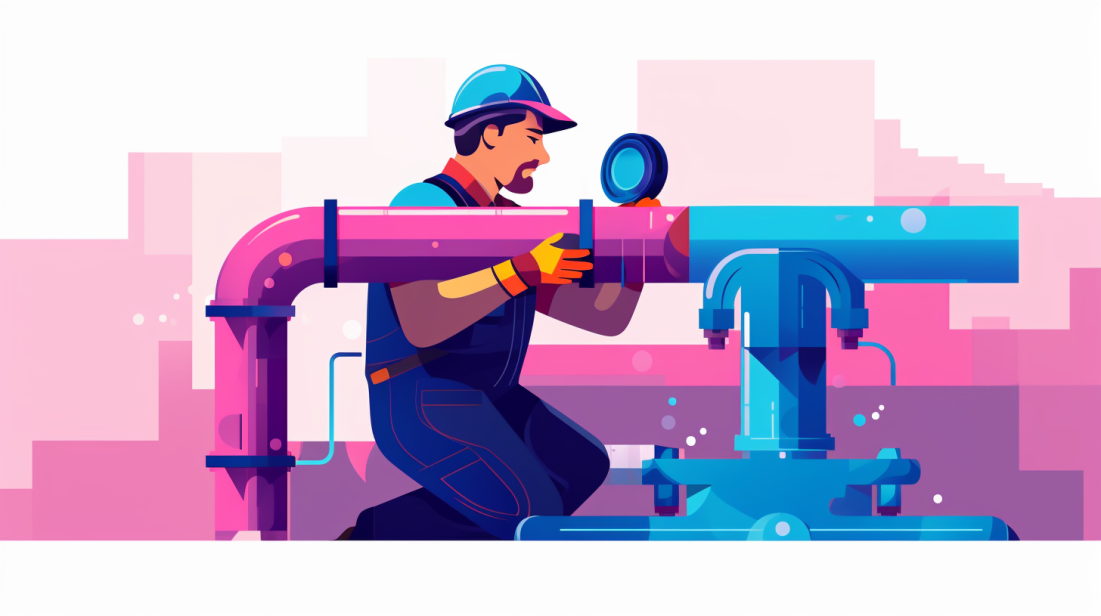
To become a journeyman plumber, you will typically need to complete an apprenticeship program. These programs combine on-the-job training with classroom instruction and usually last around four to five years. During your apprenticeship, you will work alongside experienced plumbers, learning the necessary skills and gaining practical experience in the field.
Upon completing your apprenticeship, you may need to pass a licensing exam to become a licensed journeyman plumber. Licensing requirements vary by state, so it’s important to check the specific requirements in your area. Becoming a licensed journeyman plumber will enhance your credibility and increase your earning potential in the industry.
| Entry-Level Positions | Career Progression |
|---|---|
| Apprentice Plumber | Journeyman Plumber |
| Plumbing Helper | Specialization (e.g., Pipefitting) |
| Drain Technician | Supervisory Roles |
Becoming a plumber can lead to a rewarding and fulfilling career. Whether you choose to work for an established plumbing company, start your own business, or specialize in a specific area of plumbing, the opportunities for growth and advancement are abundant. The demand for skilled plumbers continues to grow, ensuring a steady stream of job opportunities in the field. So, if you enjoy working with your hands, solving problems, and making a difference in people’s lives, a career in plumbing may be the perfect fit for you.
If you have an entrepreneurial spirit and want more control over your work, you may consider branching out on your own in the plumbing industry. Being your own boss and starting your own plumbing business can open up a world of opportunities for you to showcase your skills and creativity while reaping the rewards of your hard work.
Working independently allows you to set your own schedule and choose the projects that align with your interests and strengths. Whether you prefer residential plumbing or want to focus on industrial plumbing systems, the choice is yours. You have the freedom to diversify your services and expand your expertise in different areas, such as installing plumbing fixtures, maintaining plumbing systems, or even specializing in green plumbing solutions.
“Being an independent plumber gives you the flexibility to build your reputation and establish strong relationships with clients.”
Starting your own plumbing business requires careful planning and a solid understanding of the industry, but the rewards can be significant. As an entrepreneur in the plumbing field, you have the opportunity to build a brand that reflects your values and expertise. Whether you want to establish yourself as a trusted residential plumber in your neighborhood or create a reputable commercial plumbing company, the possibilities are endless.
Once you have established your business, you can also expand your team and mentor new plumbers, passing on your knowledge and shaping the next generation of skilled professionals in the field. As your business grows, so does your income potential, allowing you to enjoy the fruits of your entrepreneurial endeavors.
Plumbing Business Income Potential
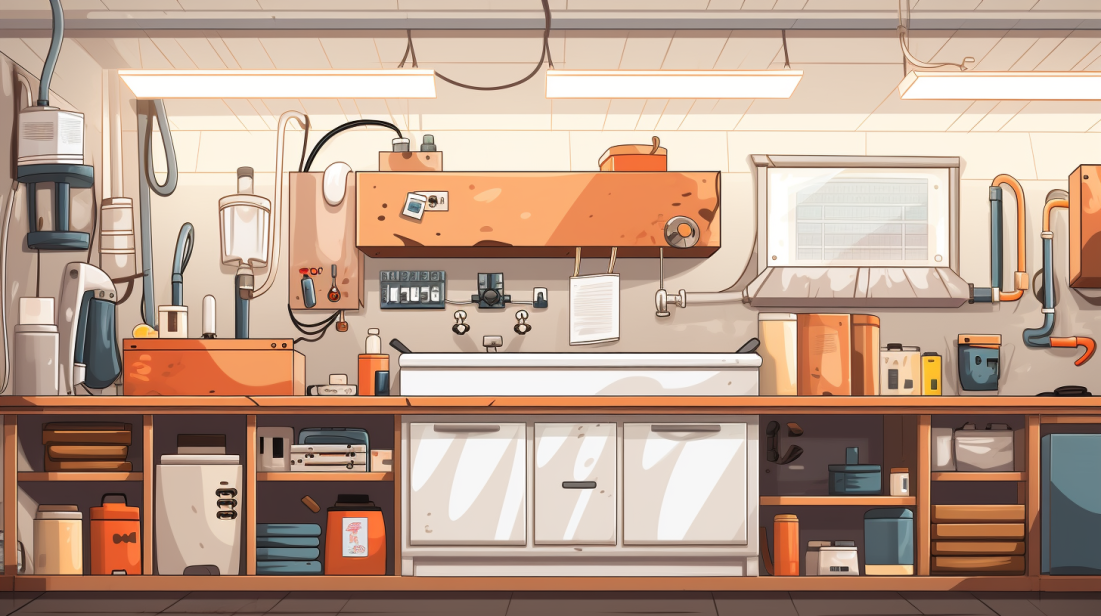
When it comes to the income potential of running your own plumbing business, the sky is the limit. Depending on your location, expertise, and the demand for your services, you can command higher rates and secure lucrative contracts. With careful financial planning and exceptional service delivery, your plumbing business can bring you a steady stream of income and financial stability for years to come.
| Plumbing Service | Average Hourly Rate |
|---|---|
| General Plumbing Services | $75 – $150 |
| Emergency Plumbing Services | $100 – $200 |
| Commercial Plumbing Projects | $100 – $200+ |
| Renovation and Construction Plumbing | $100 – $200+ |
These rates are just a snapshot of the potential earnings in the plumbing industry. Remember, your reputation, expertise, and the quality of your work will play a significant role in determining how much you can charge for your services. By consistently delivering exceptional results and providing outstanding customer service, you can build a loyal clientele who are willing to pay a premium for your expertise.
Embrace the entrepreneurial spirit and take the plunge into independent work in the plumbing industry. It’s an exciting journey filled with growth, opportunities, and the chance to make a name for yourself in a thriving field.
Whether you prefer working on large commercial projects, residential properties, or industrial facilities, there are plenty of employment opportunities in the plumbing industry. Plumbers play a crucial role in ensuring the proper functioning of plumbing systems, which are essential for everyday activities like showering, cooking, and using the restroom. With the ongoing need for plumbing services, the demand for skilled plumbers continues to grow.
Working in commercial plumbing allows you to tackle complex projects such as office buildings, shopping centers, and hospitals. These projects often involve extensive piping systems, drainage, and plumbing fixtures. Residential plumbing, on the other hand, focuses on installing and repairing plumbing systems in houses and apartment buildings. This type of work gives you the chance to interact closely with homeowners and offer solutions for their plumbing needs. If you’re interested in more industrial settings, industrial plumbing offers opportunities to work in factories, manufacturing plants, and other industrial facilities that require specialized plumbing systems for their operations.
As a plumber, you’ll have the chance to work with a wide range of materials, tools, and equipment, providing you with diverse job opportunities. From installing and repairing pipes to troubleshooting drainage issues, each task presents unique challenges that keep the work interesting and fulfilling. Whether you’re more inclined towards commercial projects, residential properties, or industrial facilities, the plumbing industry has something for everyone.
| Types of Plumbing Employment Opportunities | Examples |
|---|---|
| Commercial Plumbing | Office buildings, shopping centers, hospitals |
| Residential Plumbing | Houses, apartments, condominiums |
| Industrial Plumbing | Factories, manufacturing plants, industrial facilities |
The plumbing industry offers a wide range of employment opportunities for individuals interested in pursuing a career in this field. Whether you choose to work on commercial projects, residential properties, or industrial facilities, there is always a demand for skilled plumbers. With the potential to earn a good income and the satisfaction of helping people with their plumbing needs, a career in plumbing can be both rewarding and fulfilling.
Advantages of Becoming a Plumber
One of the great things about becoming a plumber is that you don’t need to spend years in college to start earning a good income. Unlike many other professions that require extensive education, plumbers can enter the trade with little formal education and begin working right away. This accessibility makes the plumbing career path an attractive option for those who want to start their careers quickly and avoid the burden of student loans.
Once you begin your journey as a plumber, there are ample opportunities for career growth and advancement. As you gain experience and develop your skills, you can progress from entry-level positions to become a trusted journeyman plumber. Journeyman plumbers typically have a broader range of responsibilities and are often called upon to troubleshoot complex plumbing issues.
One of the advantages of pursuing a career in plumbing is the potential for high earnings. Plumbers who have established themselves as trusted experts in the field can command higher rates for their services. With the increasing demand for skilled plumbers, there is plenty of room for financial growth and stability in the industry. Whether you choose to work for a plumbing company or start your own business, the potential for earning a comfortable income is within reach.
While being a plumber may involve working in tight quarters and dealing with less-than-pleasant materials at times, the variety of job opportunities and the potential for growth in the field outweigh these challenges. Whether you aspire to work independently, manage your own team, or specialize in a particular area of plumbing, the plumbing career path has much to offer for those willing to put in the effort.
So, if you’re looking for a career that offers a pathway to success without the demands of a traditional college education, consider becoming a plumber. With its lack of strict education requirements, potential for high earnings, and opportunities for growth, the plumbing industry can pave the way for a fulfilling and prosperous career.
Starting Your Own Plumbing Business

If you’re looking for even greater control over your career and income, starting your own plumbing business can be a fantastic opportunity. As a plumber, you already have the technical skills and knowledge required to provide essential plumbing services to individuals and businesses. By starting your own business, you become your own boss, giving you the freedom to set your own schedule and make decisions that align with your vision.
Running a plumbing business allows you to have control over your income potential. You can determine your rates, target specific markets, and expand your services to increase your earnings. Whether it’s residential plumbing, commercial installations, or specialized services, the choice is yours. With dedication and hard work, you have the potential to build a successful and profitable business.
Of course, starting a plumbing business comes with its challenges. You will need to handle administrative tasks, such as managing finances, marketing your services, and building a customer base. However, with the right plan and a commitment to delivering excellent service, you can overcome these obstacles and thrive in the industry.
| Advantages of Starting Your Own Plumbing Business | Challenges of Starting Your Own Plumbing Business |
|---|---|
|
|
In conclusion, starting your own plumbing business can provide you with the independence and financial opportunities you desire. With the right skills, determination, and a focus on delivering quality service, you can establish a thriving business in the plumbing industry.
“Starting my own plumbing business was one of the best decisions I’ve made in my career. It has allowed me to have control over my schedule and income. I love being able to provide excellent service to my customers and see my business grow.”
Career Growth in the Plumbing Industry
As you gain experience and establish yourself as a trusted journeyman, the opportunities for career growth in the plumbing industry are plentiful. The demand for skilled plumbers continues to rise, providing a steady stream of job opportunities in various sectors. With the right qualifications and experience, plumbers can advance to senior-level positions, take on supervisory roles, or even open their own plumbing businesses.
One path to career growth is becoming a specialist in a specific aspect of plumbing, such as working with advanced plumbing systems or focusing on eco-friendly plumbing solutions. Specializing in these areas can open up new doors and increase earning potential. Plumbers who choose to pursue further education or certification in specialized areas can position themselves as experts in their field, attracting more lucrative job offers and opportunities.
Job Opportunities in the Plumbing Industry
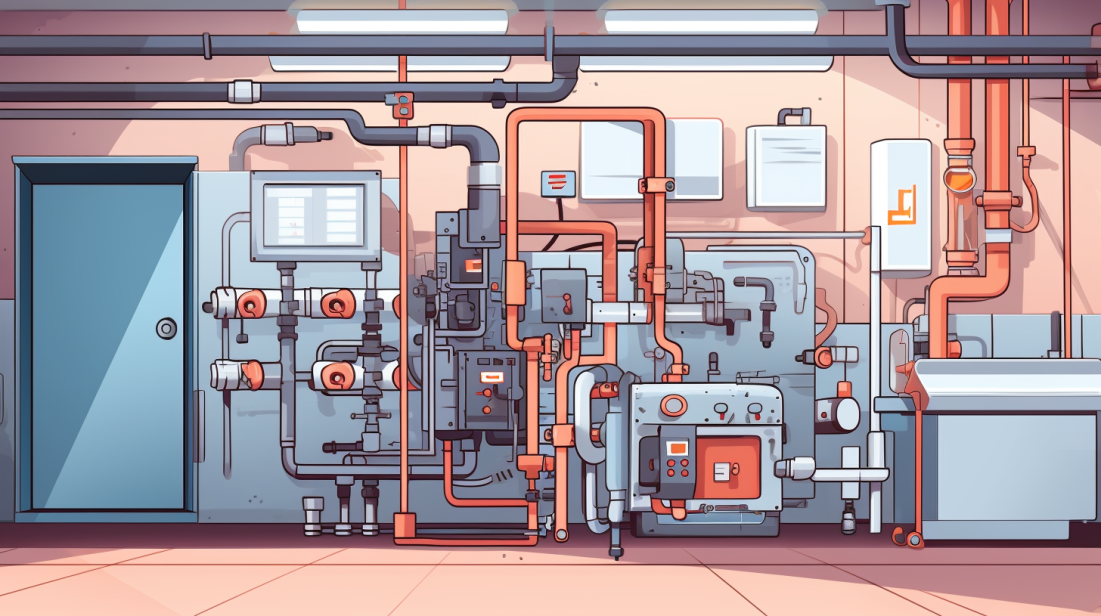
The plumbing industry offers a wide range of job opportunities for individuals at different stages of their careers. Whether you are just starting out or looking to advance, there are various positions available to suit your skills and interests. Here are some common job opportunities in the plumbing industry:
- Residential Plumber: Specializing in plumbing installations and repairs for residential properties.
- Commercial Plumber: Working on plumbing systems for commercial buildings, such as offices, hotels, and restaurants.
- Industrial Plumber: Handling plumbing systems in industrial settings, such as factories and manufacturing facilities.
- Service Plumber: Providing maintenance and repair services for plumbing systems.
- Construction Plumber: Working on new construction projects, installing plumbing systems in residential or commercial buildings.
These are just a few examples of the diverse career paths available in the plumbing industry. With experience and dedication, plumbers can progress within their chosen field and take on more challenging and rewarding roles.
| Role | Responsibilities | Qualifications |
|---|---|---|
| Master Plumber |
|
|
| Plumbing Supervisor |
|
|
These senior-level positions require a combination of technical expertise, experience, and leadership skills. As plumbers gain more experience and demonstrate their abilities, they can progress to these higher-level roles within the industry.
Job Opportunities in the Plumbing Industry
The plumbing industry encompasses a wide range of job opportunities, from working with plumbing fixtures and systems to utilizing specialized tools and equipment. Plumbers play a crucial role in ensuring the proper functioning of our indoor plumbing, which is essential for everyday activities like bathing, cooking, and sanitation.
One of the main job opportunities within the plumbing industry is working with plumbing fixtures. This can involve installing and repairing sinks, toilets, showers, and other fixtures in residential, commercial, and industrial settings. Plumbers need to have a strong understanding of plumbing systems and be proficient in reading blueprints and specifications to ensure accurate installation and repair.
Another area of job opportunity is working with plumbing systems. This includes installing, maintaining, and repairing the pipes and drains that carry water and waste throughout a building. Plumbers need to possess knowledge of different pipe materials, fittings, and jointing techniques to perform their tasks effectively.
Plumbers also utilize specialized tools and equipment to carry out their work. From pipe cutters to wrenches, plumbers rely on a variety of tools to complete their tasks efficiently. They may also use equipment like sewer cameras to inspect pipes for blockages or leaks. Familiarity with these tools and equipment is essential for success in the plumbing industry.
| Job Opportunities in the Plumbing Industry | Description |
|---|---|
| Plumbing Fixtures | Installing and repairing sinks, toilets, showers, and other fixtures. |
| Plumbing Systems | Installing, maintaining, and repairing pipes and drains. |
| Specialized Tools and Equipment | Using pipe cutters, wrenches, sewer cameras, and other equipment. |
Summary
The plumbing industry provides a range of job opportunities for individuals interested in working with plumbing fixtures, systems, tools, and equipment. Plumbers play a vital role in ensuring the proper functioning of indoor plumbing, and their expertise is needed in residential, commercial, and industrial settings. Whether it’s installing and repairing fixtures, maintaining plumbing systems, or utilizing specialized tools and equipment, there are numerous avenues for growth and success within the plumbing industry.
Conclusion
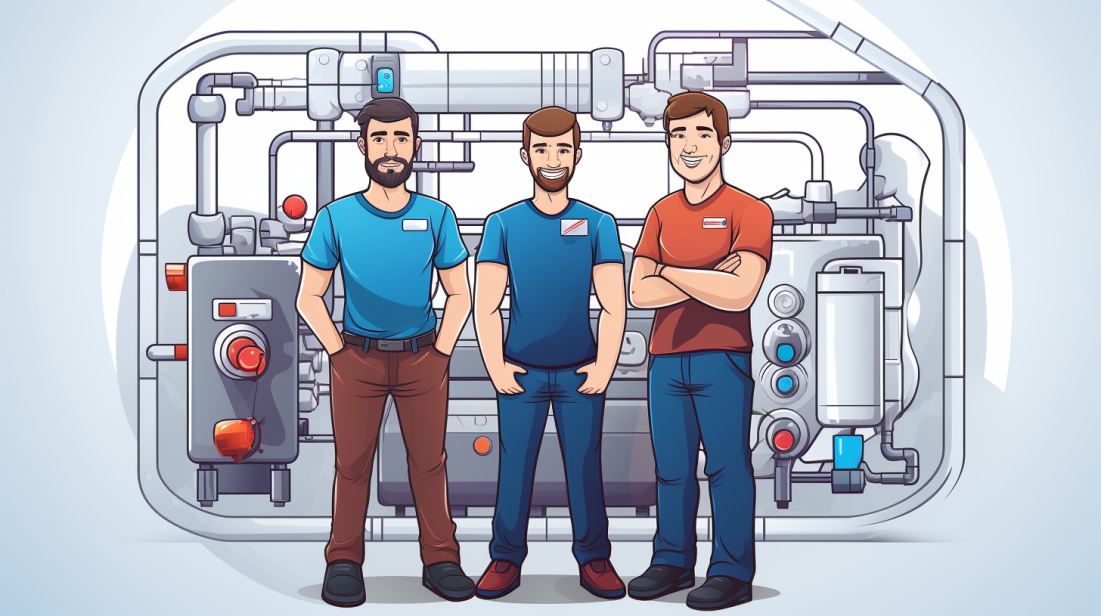
The plumbing career path offers individuals a chance to enter a rewarding and lucrative field, with plenty of opportunities for growth and success. Plumbers are in high demand, as everyone relies on indoor plumbing for various purposes. One of the positive aspects of this career is that it is easy to enter the trade, with no formal education required.
Plumbers can start as entry-level workers and work their way up to become journeyman plumbers or supervisors. They also have the option of branching off and working independently or starting their own business. Plumbers can find employment in various places, such as large commercial plumbing companies or as apprentices to single-person plumbing companies.
While there are some negative aspects, such as working with unpleasant materials and in tight quarters, the career offers a wide range of opportunities. Becoming a plumber has several advantages, including the lack of strict education requirements and the potential for high earnings once a plumber gains experience and becomes a trusted journeyman.
For those who are entrepreneurial-minded, becoming a licensed plumber and starting their own business can be a lucrative option. Various job opportunities are available in the plumbing industry, ranging from entry-level positions to senior-level positions. With enough experience, plumbers can eventually open their own plumbing business. Starting a plumbing business comes with benefits like being one’s own boss and having control over one’s income potential and work environment.
Overall, the plumbing career path presents new opportunities and growth potential for individuals interested in the field.
What Are the Growth Opportunities in the Esthetician Career Path?
The esthetician career path offers various growth opportunities for professionals in the beauty industry. Estheticians can broaden their skill set by specializing in areas such as medical aesthetics, spa management, or cosmetic sales. Additionally, estheticians can explore entrepreneurship and establish their own skincare clinics or salons. Continuous education and staying updated with the latest trends are crucial for success in the esthetician career path.
FAQ
Q: What qualifications do I need to become a plumber?
A: One of the great things about a career in plumbing is that you don’t need any formal education. However, completing an apprenticeship or vocational training program can provide valuable hands-on experience and increase your job prospects.
Q: Are there opportunities for career progression in the plumbing industry?
A: Absolutely! Many plumbers start as entry-level workers and can work their way up to become journeyman plumbers or supervisors. With enough experience, you can even open your own plumbing business.
Q: What types of jobs can I get in the plumbing industry?
A: There are a variety of job opportunities available in the plumbing industry. You can work for large commercial plumbing companies, residential plumbing companies, or even as an apprentice to a single-person plumbing business.
Q: Is plumbing work physically demanding?
A: Plumbing work can be physically demanding at times, as it often involves working in tight spaces and carrying heavy equipment. However, proper training and the use of specialized tools can help minimize strain and ensure safety on the job.
Q: How much can I earn as a plumber?
A: The earning potential for plumbers can vary based on factors such as experience, location, and specialization. However, with experience and expertise, plumbers can earn a competitive salary, and those who own their own business can have even higher income potential.
Q: Can I start my own plumbing business?
A: Absolutely! If you’re entrepreneurial-minded, becoming a licensed plumber and starting your own business can be a lucrative option. It gives you the freedom to be your own boss, control your income potential, and create your ideal work environment.
Q: Are there opportunities to specialize in a specific area of plumbing?
A: Yes, there are opportunities to specialize in areas such as residential plumbing, commercial plumbing, HVAC systems, and more. Specializing in a specific area can help you stand out in the job market and increase your earning potential.
Q: What are the advantages of a career in plumbing?
A: One of the main advantages of becoming a plumber is the lack of strict education requirements. You can enter the trade without an extensive formal education. Additionally, as the demand for plumbing services remains high, there are ample opportunities for job security and growth.
Q: What kind of skills do I need to be a successful plumber?
A: Successful plumbers possess technical skills such as troubleshooting and problem-solving abilities. They should have good manual dexterity, an eye for detail, and the ability to work well in team settings. Strong communication skills are also important for interacting with clients and colleagues.
Q: How do I get started in the plumbing industry?
A: To get started in the plumbing industry, you can explore apprenticeship programs, vocational training, or seek entry-level positions with plumbing companies. It’s also helpful to gain practical experience through hands-on training and familiarizing yourself with plumbing tools and equipment.






